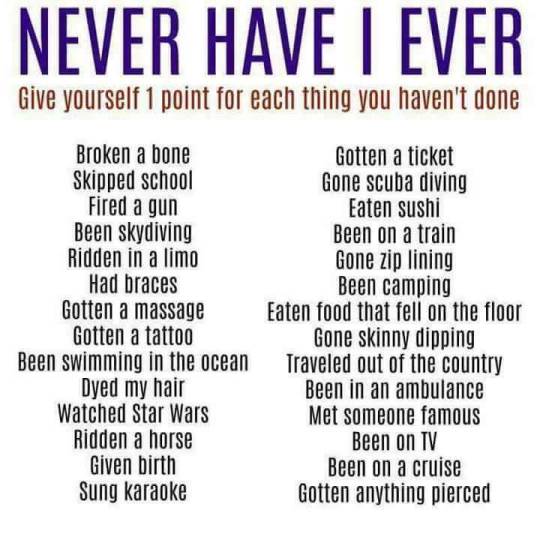She/her - Main fandoms: Ghost of Tsushima, Critical Role, The Originals
Don't wanna be here? Send us removal request.
Text
Transphobia is so antithetical to genuine feminism it blows my mind there's such a wide overlap like you either believe in autonomy and self determination or you don't
86K notes
·
View notes
Text
love when fictional men are so devoted to their partner it makes them dangerous and insane. very slutty behavior keep it up king
66K notes
·
View notes
Text





Captain America: The Winter Soldier (2014), dir. Russo brothers
4K notes
·
View notes
Text

~ Don't mess with the Soldier ~
A feral WS from my patreon 🖤
Ko-fi | patreon
(Ah! I changed my handle from annafacose to @alfafacose)
2K notes
·
View notes
Photo




(◕‿◕✿)
487 notes
·
View notes
Text
got twins on the brain again, and while i never want to be one to police other peoples' fanart, especially when the official art starts doing this too by the time we hit tlovm, i do think it's a tragedy that the common depiction of the twins these days is as indistinguishable from being elves
bc the fact that as half elves they are easily clockable as outsiders to either humans or elves is a huge part of their story
as someone with a lot of experience in that myself, i can say with certainty that while you want to be able to call both sides of you your identity, in practice the people of that identity excluding you for being not enough like them just makes you feel like you're lying if you call yourself either
and when it comes to vex and vax, as usual, they both respond to that in opposite ways!
vax wants to be human. he has immense nostalgia for the time they had with their mother, and an even more intense hatred for everything about syngorn. every time someone in the campaign mistakes him for an elf he immediately gets set on edge and has to correct them. even with sprigg, where he's pretending not to listen in to sprigg's ramblings, the second sprigg refers to him as the elf boy, he has to jump in with this

vex, on the other hand, wants to be an elf. the bullying she faced in syngorn for being too human destroyed her self esteem, and she's constantly trying to prove she's good enough to be one of them. it doesn't come naturally to her either, her being herself sticks out in a way she finds deeply embarrassing, and so many of all her layers and masks and pretenses have been built up to originally cover a single fact - she just isn't an elf
and skipping over that also means you lose another facet i love, which is that vax moving to zephrah and vex moving to whitestone wasn't just about being near their respective partners
if you take the comics as canon, keyleth was the first half elf either of them had met aside from each other. and keyleth's existence was a revelation for vax - half elves aren't all a product of an interracial relationship. keyleth's parents are both also half elves. zephrah represents generations of half elves, it's the first community he genuinely feels at home in. yes he loves keyleth but also just being around the people of zephrah is the first time he's ever gotten evidence of people like him not being a mistake. he can have an identity that's his own, instead of trying and failing to meet either criteria of his heritage
percy and vex take a different approach. he can't undo all the bullying she faced as a kid, nor can he solve all the world's bigotry, but he can show her that what makes her different is a good thing. the grey hunt title is earned, not given, which means that nothing and no one can take it away from her, not even him. she's not an elf, but she can be better. she's not human, but whitestone isn't just a home to humans anymore. they're rebuilding the city from the ground up, with her at the heart of it. she's earned her place here not because of what she was born as, but because of who she became. she is the foundation. and that makes whitestone more of a home than any place that made her jump through hoops to belong there
#twin meta!#stealth twins#vex'ahlia#vax'ildan#such a good point#it's something very easily glossed over
261 notes
·
View notes
Text




yelena belova ⤿ thunderbolts* (2025)
the way i started bawling when she said that
#thunderbolts#thunderbolts*#yelena belova#thunderbolts spoilers#mcu#my girl#that pain :(#the raw admission
88 notes
·
View notes
Text
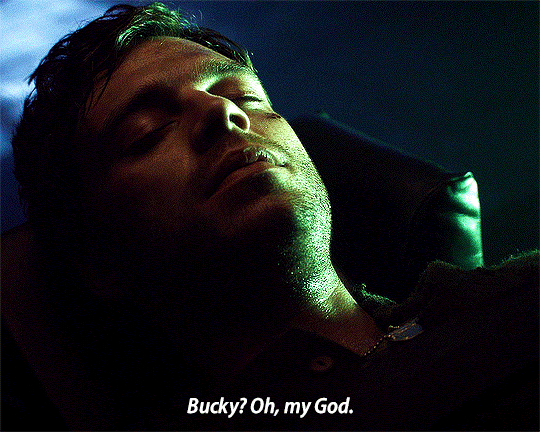
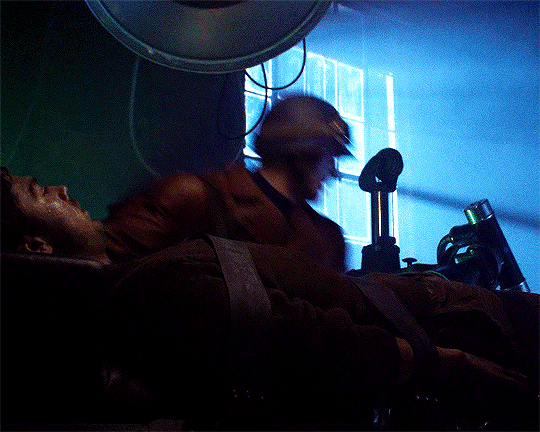
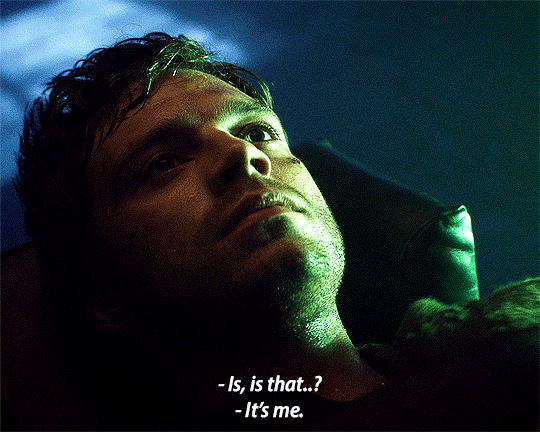
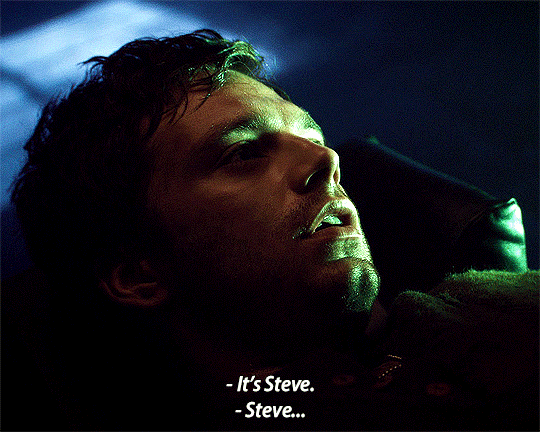
Captain America: The First Avenger (2011)
#stucky#captain america the first avenger#bucky barnes#steve rogers#Im back on my bullshit again#damn it thunderbolts#dragging me back into my bucky barnes obsession
7K notes
·
View notes
Text
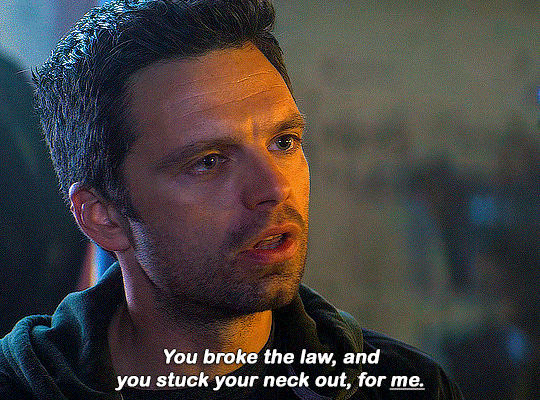
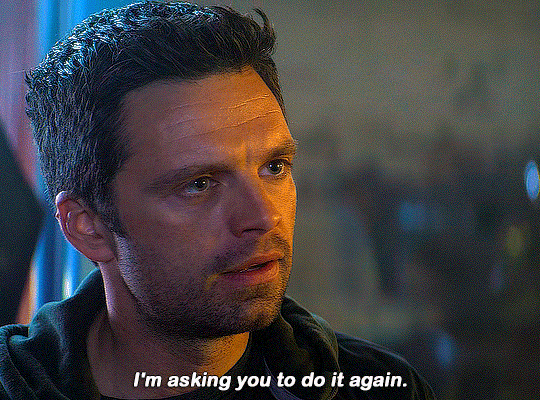



THE FALCON AND THE WINTER SOLDIER (2021)
1.03 “Power Broker”
630 notes
·
View notes
Text

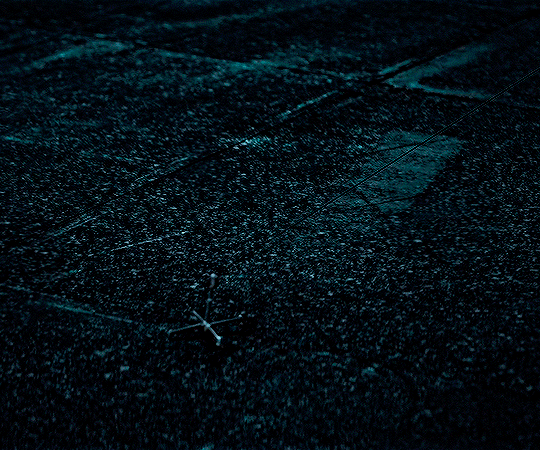



Yelena Belova + falling
5K notes
·
View notes
Text
this started as a reblog comment on this post but it got tangential so it gets own post instead. still, credit and thanks to @utilitycaster for reigniting a brainworm I've been meaning to exorcise for ages, which is: fate as a narrative element of Critical Role.
Cause "fate"/"destiny" is another thing that gets name-dropped a lot where frequently the function is purely poetic, but is also shown to be a metaphysical truth of Exandria even though it's unclear exactly how it works. We can say for certain that Exandrian fate is not predestination. On a meta level that would be antithetical to an improv and dice-rolling format, and it's not a belief we ever hear of in-universe to my recollection.
I spent a lot of college studying Homeric epic, and also writing about fate and predestination as functions of narrative temporality in general. There's two load bearing concepts in Homeric studies that I often find useful references in other literary context, especially as a precedent for epic fantasy like CR vis a vis gods and fate as elements of the worldbuilding. First is that the Greek word for 'fate', moira (μοῖρα), also means 'lot,' 'share,' or 'portion.' "One's lot in life" gives a more accurate impression of the workings of fate in Homer than the connotation of inflexible predestination, as it is often misconstrued. The ultimate and only truly unavoidable moira is death (for mortals, at least). That is the model for the relationship of fate and causality (which, side note, can be surprisingly compatible with existentialism in certain contexts).
Speaking of causality, the other concept is the "double motivation," which is an interpretation of the gods' frequent influence on mortal action that allows divine interference to coexist with free will and character agency. It simply attributes causality and moral responsibility for divinely-influenced actions to both gods and mortals simultaneously (as opposed to other interpretations which seek to deduce a position on one side of a binary between either straight-up divine mind-control or gods as figurative personifications of mortal interiority.)
In the past, I've used double motivation analogously as a frame for literary criticism more broadly, paralleling the divine-mortal duality with an extradiegetic/structural sense of the narrative and the diegetic/internal world of the characters, respectively. It also loosely maps onto when we talk about plot-driven stories vs character-driven stories. My personal metric is that the best works achieve a harmony of double-motivation such that they can't be sorted into the plot- or character-driven dichotomy. The needs of the story and the motivations of the characters are coterminous.
It's worth noting that modern expectations of narrative and standards for what makes a "good" story differ in a lot of ways to ancient modes, especially when it comes to the psychological facet of characters. We hold works to much higher standards in terms of justifying why characters do things, which makes metaphysical destiny a trickier concept to incorporate textually. A lot of modern lit crit (and a lot of fandom discourse, in my experience) only wants to see or consider the character motivation. Some structuralist corners are more hospitable to the narrative motivation, but it depends on who you're talking to really. I digress.
As for how these relate to CR: I see the sense of "destiny" attributed PCs as relating to their narrative function as protagonists. In the same way that death is the ultimate moira for mortals, the inevitable "destiny" of PCs-as-such is that they will be the heroes of a story; the story itself is not preordained—it is loosely planned, but obviously not set in stone. We cannot be sure what actions and events will make up the story, but we can be sure that the PCs will be at the center. This is also just another, more top-down way of phrasing the linked post's point about destiny as a matter of character intent. There's a conceptual link between "destiny" and "agency," counter to the connotation of predestiny.
The format of TTRPGs make them an excellent ground for demonstrating the double-motivation narrative in process because of how visible and integral the diegetic facet of the story is (*don't say Brechtian, do not call it Brechtian*) playing out in real time. And I think out of all the AP shows I've seen, the CR cast most tends to build characters in pursuit of psychological realism. Those pieces in combination make a higher bar for achieving that narrative harmony; the marvel of CR is how often they still manage to accomplish it, and it's extra satisfying because of the challenge at the outset. This is why I find Campaign 2 especially so impressive: even as PC choices warp the path of Matt's anticipated narrative in some big ways, it all still synthesizes into narrative harmony. M9 are not traditional heroic types to start out, and often act counter to the expected archetypes of the genre. Matt responds to their decisions with a degree of flexibility in the plot, resulting in a deeply believable psychological story about M9 developing into heroes—one which still hits the promised elements of heroic fantasy and the necessary beats of Matt's story outline, while being the most sandbox-y out of all the campaigns, complete with serendipitous emergent themes of choice, agency, and identity throughout.
Campaign 3 is the opposite. BH are metatextually "fated" to be the heroes of their narrative the same as M9. Like M9, their actions much of the time don't correlate to the role; unlike c2, the story does not respond to or accommodate the characters. BH may seem to lack a "sense of destiny" as part of their NPC vibes, but they nevertheless retain the moira of being PCs and are stuck as the primary focalizing point of the story, regardless of how they continuously lean on literally anyone else to make decisions. The commentary on being nobodies who fell into this position could have been a gratifying thematic through-line similar to what both c2 and Divergence accomplish in different ways, if only BH had ever developed past the premise of that statement and started acting like PCs. Instead they kind of made the opposite thematic statement: shirking destiny not in a textual way that actually engages with fate as an in-universe concept, but by trying to abdicate the narrative duties of protagonist without ever escaping that positionality. Thus the hand of god—both in the figurative sense of the DM's writerly hand and the in-universe deus ex machinae feeding BH plans of action—is extremely visible as it props them up through the plot. To bring back the Homeric comparison: imagine the Odyssey with all the same plot beats, but Odysseus spends the whole poem talking about how his wife and son are kinda meh and he doesn't really care all that much about returning home. That's c3, to me.
106 notes
·
View notes
Text







ROGUE ONE: A STAR WARS STORY 2016 | dir. Gareth Edwards
315 notes
·
View notes
Text
Honestly, I think it's grounding when some of your favorite creators do put out work you don't particularly like every once in a while. Sure, it can be frustrating and annoying and disappointing, but to the tune of "I know you can do better so I'm still interested to see what else you got". And if they somehow don't get any better or make any more stuff that you like, well, you've still got that other thing - and frankly, it's perfectly natural and okay and dare I say it even good to move on and find something else.
It also helps you develop taste, preferences, and discernment as a consumer of art and media. Just because a creator put out something you really love doesn't oblige you to heap praise on everything they create, especially when it's mediocre or bad, and in fact being able to recognize that creators don't make good work 100% of the time is a good way to help keep you from putting them on unnecessarily high pedestals.
I can't help but wonder if people are sometimes hesitant to put out critiques of things because there's been this pervasive idea in fandom (all of them, everywhere) the past, idk, decade or so that if you're going to dislike something you have to do it on some kind of weird moral justification as part of your supporting arguments, and if you don't do that you leave yourself open to being called some kind of epithet based on whatever attributes of the thing or character you've dared to analyze (which isn't to say that people don't write shit analysis like that ever, because they do, but so often fans of said thing don't practice enough discernment or reading skills to actually be able to tell the difference, or flat out don't care, because how dare you not like their favorite and write about it on your own space) -- which is all to say, how many people have allowed themselves to not develop discernible taste or allowed themselves to avoid picking apart why they don't like x story element or y character or z trait because general consensus appears to be that unmoralized critique is "mean"?
Not everyone enjoys picking apart their reactions to media, or analyzing the elements in said media. Many people, especially these days, just want a break for their brain and to escape the world for a little while - and I get that, I really do. But I also believe that everyone needs to develop a baseline level of discernment that you can tune into every now and again to check your own biases, and any that are potentially being presented to you, whether in the media itself or in analyses. It's a good skill to have, and ever increasingly a necessary one, to look at something and ask yourself "what is this, what is it saying, who is saying it, and where does it come from?"
Being able to understand what drives your preferences helps you identify your own biases and blind spots, and makes you better equipped to recognize when something is actually fucked up instead of just meekly accepting everyone else's opinion. Then, you can decide for yourself how to engage with it. Not only does this help you find other things you are more likely to legitimately enjoy (taste), but can also help hone your instincts when something feels off (discernment).
274 notes
·
View notes
Text
saw someone tag a post about the guillotine with ‘say what you want about it, france never had another king’
pop quiz! what did france have after the revolution—perhaps a sort of super-king?
#the dutch gained our monarchy after that superking installed it#so technically the french revolution is to blame for making the republic of the neterlands#the kingdom of the netherlands
5K notes
·
View notes
Text
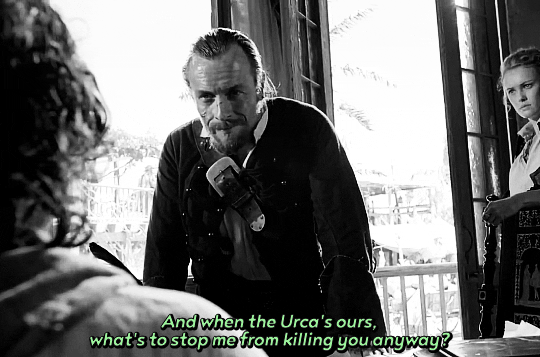
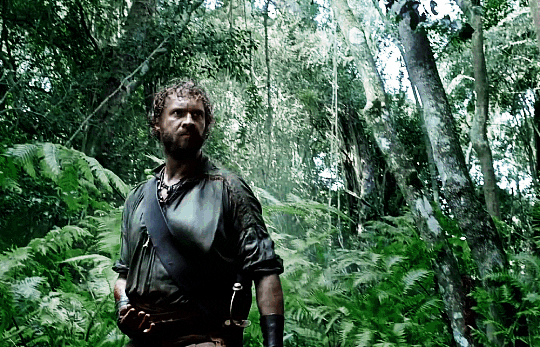
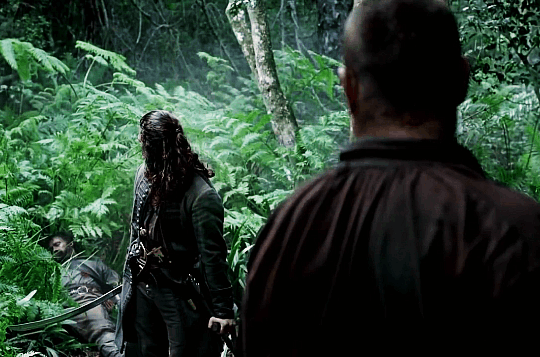
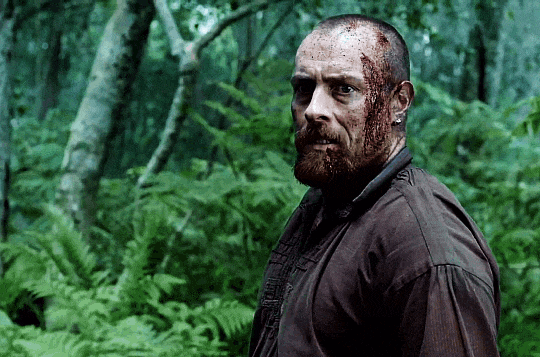

BLACK SAILS - S01E03 // S04E09.
1K notes
·
View notes

